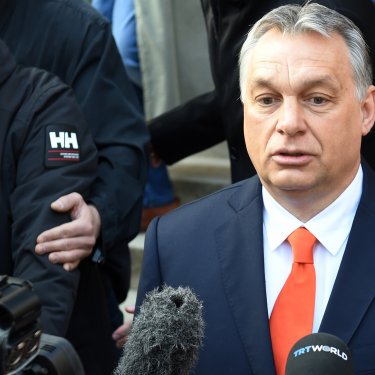Unprecedented merger poses threat to survival of media pluralism in Hungary

Reporters Without Borders (RSF) is extremely concerned about last week’s announcement that around 500 pro-government media outlets in Hungary are to be brought together in a single umbrella group with the aim of preserving “national values.” The move threatens the very survival of media pluralism.
The owners of most of these pro-government media outlets, which include TV news channels, news websites, tabloids, sports newspapers, radio stations and magazines, announced almost simultaneously on 28 November that they were donating them to the Central European Press and Media Foundation (CEPMF).
A non-profit entity created in August with the declared aim of “ensuring the preservation of national values,” the CEPMF is owned by Gabor Liszkay, a close ally of Prime Minister Viktor Orbán.
Orbán has for a long time been getting oligarchs linked to his ruling Fidesz party to take over media outlets in order to get them to adopt pro-government editorial policies. This latest move will in practice allow him to disseminate his propaganda with a single voice via radio, TV and print media.
It therefore poses a grave threat to media pluralism and the survival of the few remaining independent and opposition media outlets. Already deprived of advertising income, outlets such as Radio Klub and the news website Index.hu have been struggling for years to make themselves heard.
“How far will Viktor Orbán go?” said Pauline Adès-Mével, the head of RSF’s European Union and Balkans desk. “The merger of so many media outlets that support the same party has not been seen in Hungary since the end of the communist regime and is unprecedented in the European Union. Such a level of concentration makes us fear for the very survival of media pluralism in Hungary.”
In another disturbing development, László Puch, the owner and publisher of the Budapest Sunday newspaper Vasarnapi Hirek, has announced that it is to be closed after 33 years and merged with opposition newspaper Népszava. Although rumoured for some time, it is an additional blow to media pluralism in Hungary. Puch also announced that he has sold his agricultural weekly Szabad Föld to Mediaworks, a leading pro-Fidesz media group.
Orbán’s steadily tightening grip on the Hungarian media since his return to the premiership in 2010 has had the effect of driving Hungary down RSF’s World Press Freedom Index. It is now ranked 73rd out of 180 countries.



